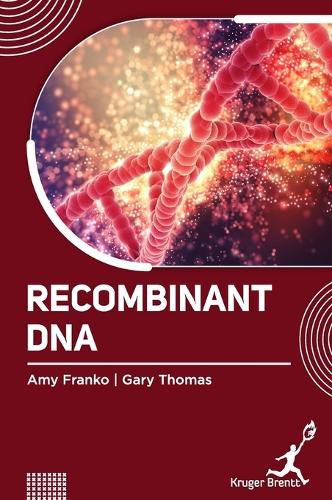Readings Newsletter
Become a Readings Member to make your shopping experience even easier.
Sign in or sign up for free!
You’re not far away from qualifying for FREE standard shipping within Australia
You’ve qualified for FREE standard shipping within Australia
The cart is loading…






This title is printed to order. This book may have been self-published. If so, we cannot guarantee the quality of the content. In the main most books will have gone through the editing process however some may not. We therefore suggest that you be aware of this before ordering this book. If in doubt check either the author or publisher’s details as we are unable to accept any returns unless they are faulty. Please contact us if you have any questions.
1.Fundamental Principles of Recombinant DNA Technology:
-Introduce the basic concepts of recombinant DNA (rDNA) technology, including the creation and manipulation of DNA sequences from different sources to produce genetically modified organisms or products.
2.Key Techniques and Tools:
-Discuss the essential techniques used in rDNA technology, such as restriction enzymes, ligases, cloning vectors (plasmids, viruses), polymerase chain reaction (PCR), and gel electrophoresis. Highlight advancements like CRISPR-Cas9 for precise genome editing.
3.Applications in Biotechnology and Medicine:
-Explore real-world applications of recombinant DNA technology in various fields, including the production of insulin, vaccines, genetically modified crops, and therapeutic proteins. Address its role in gene therapy and personalized medicine.
4.Ethical, Legal, and Social Considerations:
-Examine the ethical, legal, and societal implications of recombinant DNA technology, such as concerns about genetic modifications, biosafety, and the impact on biodiversity and ecosystems.
5.Case Studies and Emerging Trends:
-Provide case studies showcasing the successful use of recombinant DNA in research and industry. Discuss emerging trends, such as synthetic biology, bioengineering, and the development of next-generation genetic tools.
$9.00 standard shipping within Australia
FREE standard shipping within Australia for orders over $100.00
Express & International shipping calculated at checkout
This title is printed to order. This book may have been self-published. If so, we cannot guarantee the quality of the content. In the main most books will have gone through the editing process however some may not. We therefore suggest that you be aware of this before ordering this book. If in doubt check either the author or publisher’s details as we are unable to accept any returns unless they are faulty. Please contact us if you have any questions.
1.Fundamental Principles of Recombinant DNA Technology:
-Introduce the basic concepts of recombinant DNA (rDNA) technology, including the creation and manipulation of DNA sequences from different sources to produce genetically modified organisms or products.
2.Key Techniques and Tools:
-Discuss the essential techniques used in rDNA technology, such as restriction enzymes, ligases, cloning vectors (plasmids, viruses), polymerase chain reaction (PCR), and gel electrophoresis. Highlight advancements like CRISPR-Cas9 for precise genome editing.
3.Applications in Biotechnology and Medicine:
-Explore real-world applications of recombinant DNA technology in various fields, including the production of insulin, vaccines, genetically modified crops, and therapeutic proteins. Address its role in gene therapy and personalized medicine.
4.Ethical, Legal, and Social Considerations:
-Examine the ethical, legal, and societal implications of recombinant DNA technology, such as concerns about genetic modifications, biosafety, and the impact on biodiversity and ecosystems.
5.Case Studies and Emerging Trends:
-Provide case studies showcasing the successful use of recombinant DNA in research and industry. Discuss emerging trends, such as synthetic biology, bioengineering, and the development of next-generation genetic tools.